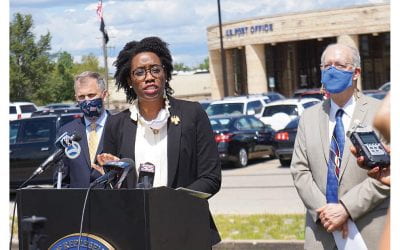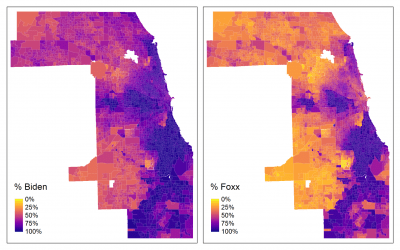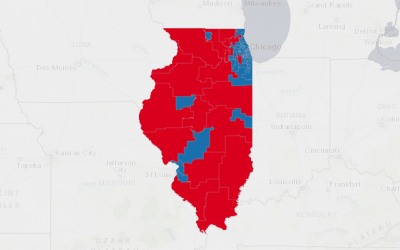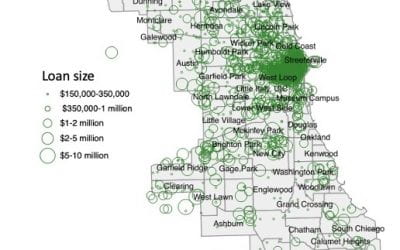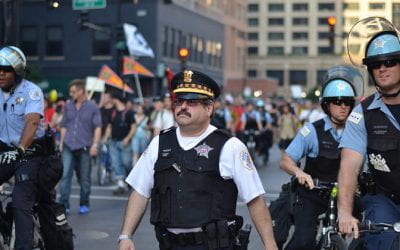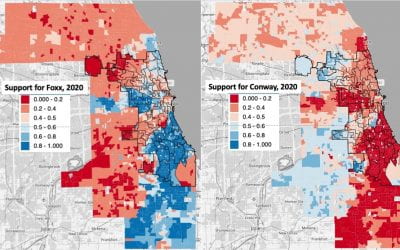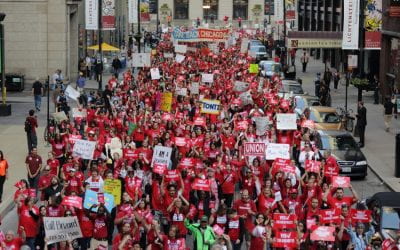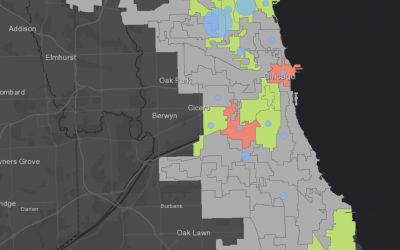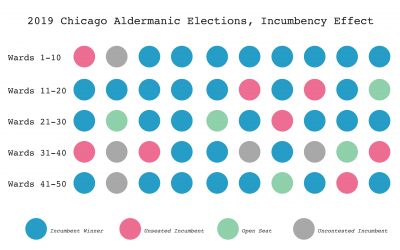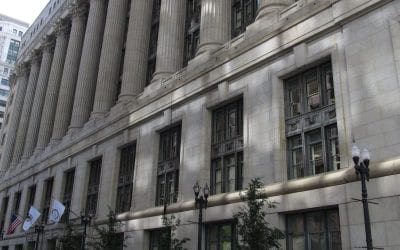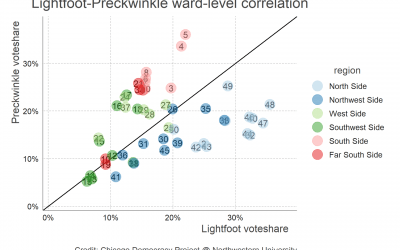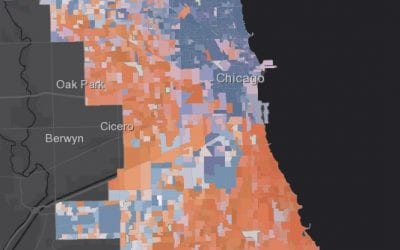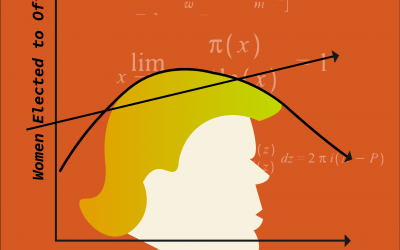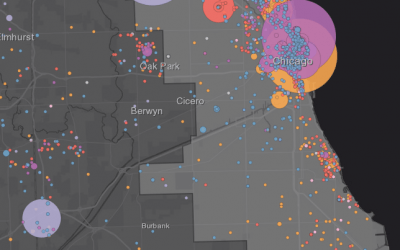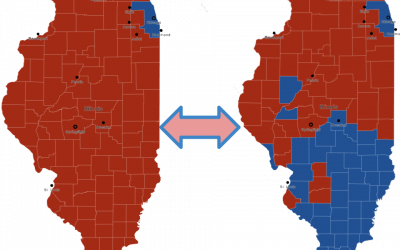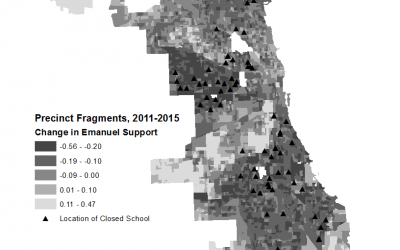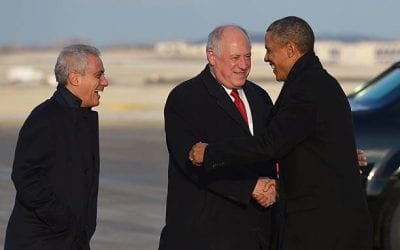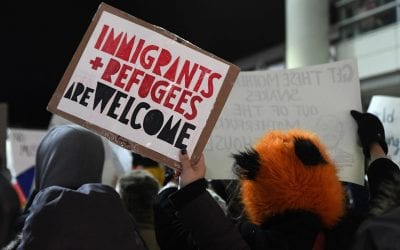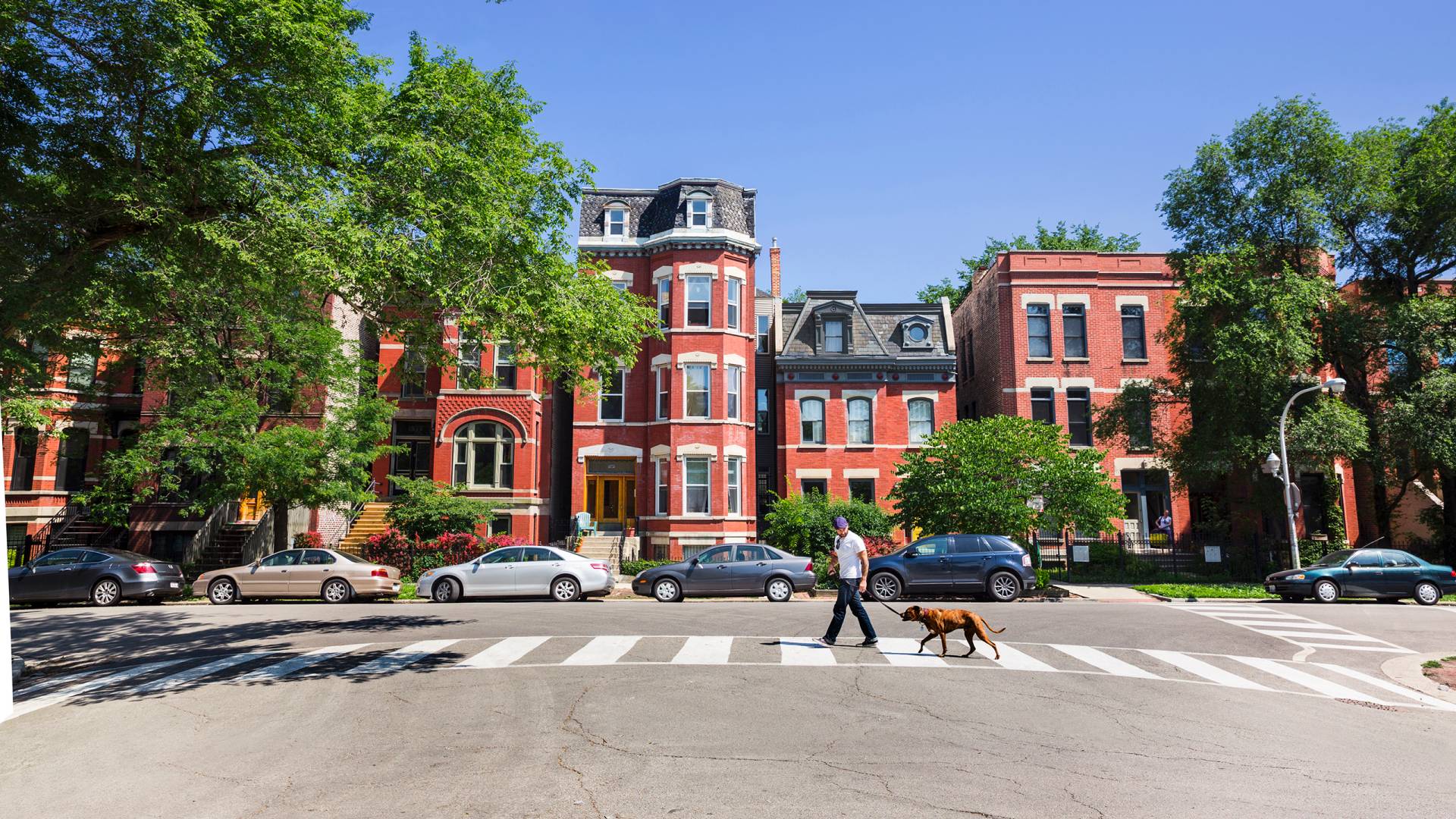Chicago Democracy Project
NORTHWESTERN UNIVERSITY POLITICAL SCIENCE DEPARTMENT
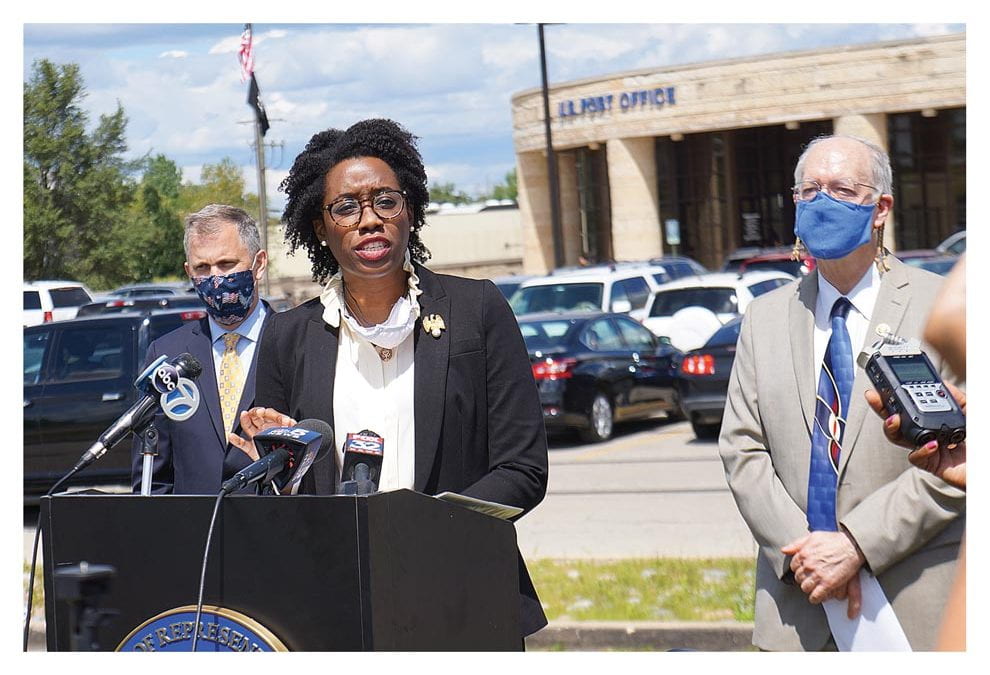
Blue Wave or Blue Ripple? Democratic Changes in Illinois’ Suburban Congressional Races
Many polls leading up to the 2020 Presidential Election predicted a continuation of the “blue wave” that began in 2018. Political analysts had anticipated mass defeat among Republican contenders, forecasting a substantial tide of turnout and support for the Democratic...
Find election results, demographics, and more.
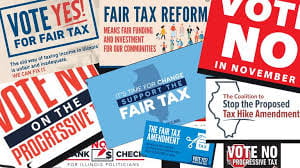
What’s the matter with Illinois? The Fair Tax Fails
In November 2020, the Presidential election took most of the headline space in Illinois and elsewhere. Down the ballot, however, important choices were made in many states and cities that will both impact Americans’ lives. Some of these results can also help us learn about voters’ priorities and ideological decision-making. In Illinois, the recent statewide ballot measure to amend the Illinois constitution is a theoretical headscratcher: “Why don’t even blue states tax the rich?”
Blue Wave or Blue Ripple? Democratic Changes in Illinois’ Suburban Congressional Races
Many polls leading up to the 2020 Presidential Election predicted a continuation of the “blue wave” that began in 2018. Political analysts had anticipated mass defeat among Republican contenders, forecasting a substantial tide of turnout and support for the Democratic...
What’s the matter with Illinois? The Fair Tax Fails
In November 2020, the Presidential election took most of the headline space in Illinois and elsewhere. Down the ballot, however, important choices were made in many states and cities that will both impact Americans’ lives. Some of these results can also help us learn about voters’ priorities and ideological decision-making. In Illinois, the recent statewide ballot measure to amend the Illinois constitution is a theoretical headscratcher: “Why don’t even blue states tax the rich?”
A View from Downballot: Fractures in Cook County’s Democratic Coalition
Democratic dominance in big cities masks the ideological complexity of the party’s metropolitan coalition. Cook County voters had the opportunity to express their preferences on criminal justice reform through their vote for State’s Attorney, where incumbent Kim Foxx ran on a reform platform. The vote was split along racial lines.
Decision Day in Illinois: The Graduated Tax Ballot Measure
This November, voters will cast ballots for dozens of local, state, and federal offices. Illinois voters will also decide on a ballot measure that would amend the state constitution and permit state legislators to tax income under a graduated tax system, from its...
Neighborhood Disparities in Chicago Covid Relief
Last week, after dogged pressure from watchdogs and transparency advocates, the Department of Treasury released some data on the recipients of the Paycheck Protection Program (PPP), which was designed to help weather the Covid storm. The program was designed to...
The Racial Divide in Chicagoland’s Experiences of Policing
Co-authored with Matthew Nelsen and Tom Ogorzalek | As protests against racism and police brutality continue across the United States, issues of policing have come to dominate the local political agenda across the country, including in Chicago. Activists have proposed defunding the police, removing police officers from schools, civilian accountability of police, and numerous other policies. In light of ongoing public discussion on these proposals, this blog post shares findings from recent surveys that highlight stark differences in experiences and views of policing across racial groups in Chicagoland. Underscoring the voices of activists and protestors, we find that Black residents disproportionately experience negative encounters with police, sharply disapprove of their performance, and express more concern about crime.
Breaking Down Kim Foxx’s Win in the 2020 Primary
Co-authored with Tom Ogorzalek
Progressive prosecutor Kim Foxx won the 2020 primary for Cook County State’s Attorney comfortably, though not overwhelmingly. Close analysis shows that Foxx retained strong support in African American neighborhoods, but saw a decline in support in many white neighborhoods.
Who had the opinion edge? CTU v CPS
Most Chicagoans didn’t have strong leanings going into the CTU strike. African Americans were more inclined to support the union, while homeowners leaned toward CPS.
Who “Likes” the Teacher Strike?
Over the weekend, Chance took the CTU strike national. How have local officials used social media to express their views on the issue? We take a quick look at the politics of the strike by examining what members of the City Council have said about it on Twitter and how Chicagoans feel about the CTU and school board.
Open Seats Inspire the Greatest Political Participation—And Other Findings from the Chicago 2019 Municipal Election
In the 2019 Chicago election, seven out of the eight incumbents who lost their seat were replaced with younger candidates unaffiliated with Chicago’s Democratic political machine. This makes clear that voters preferred youthful passion over entrenched candidates....
How Did Chicago’s Segregated Neighborhoods Vote in the Mayoral Election?
Does the February election’s historic outcome of two black women proceeding to the run-off mean that Chicago politics is transcending racial segregation? Not quite.
Toni Preckwinkle and Lori Lightfoot’s Overlapping Bases
Lightfoot and Preckwinkle, who will face each other in the April 2 run-off election, both did well in similar areas, especially the historically reform-minded areas around Hyde Park and on the lakefront wards of the North Side.
Historical Firsts and National Trends in Chicago’s Election
Chicago’s political order was upended in last week’s election, and April’s runoff will have historic results. The election was part of a national trend in big-city politics.
The Trump Bump and the Greater Trend of Political Engagement in Chicago Aldermanic Elections
The City of Chicago is currently in the midst of the most competitive and diverse aldermanic election yet. Only four incumbents are going unchallenged—compared to 2015 when six seats went unchallenged and 2011 when seven seats went unchallenged. The bigger...
A View of the Money Behind Chicago’s Mayoral Election
Big-city politics means big money these days, and the 2019 Chicago mayor’s race is no exception. Where are mayoral candidates getting their money from?
Pritzker, Middle America, and the future of Illinois Politics
JB Pritzker currently leads Bruce Rauner, the Republican incumbent, by ten points or more in every single poll (Check: Here). Although polls have fallen from their good graces, a ten point lead is not something for Democrats to lose sleep over. Whether or...
CDP in the Washington Post: School Closures Mobilized Voters Against Emanuel
The response to Emanuel’s massive wave of school closures may have been an important factor in his calculation–Chicagoans mobilized against the move.
Governing American cities means reaching beyond local boundaries
The new localist perspective advocating for greater local autonomy is promising–this is indeed the best hope for a responsible and responsive governance right now, and the cities where our challenges will be felt most acutely have no choice but to lead the way. But they remain profoundly vulnerable in the federal system.
Sanctuary cities don’t ‘breed crime.’ They encourage people to report crime.
The idea of “sanctuary cities”–local governments that have made it policy not to coordinate their activities with U.S. Immigration and Customs Enforcement (ICE)–has been in the news a lot lately.
Rent Control and Neighborhood Change in 3 Maps
When Chicagoans go to the ballot box next week, some of us will have an extra line on the ballot asking: “Should the state repeal the ban on rent control?” The measure is advanced by the grassroots Lift the Ban coalition. Let’s take a look at the features of this referendum.

